|
Books Should Be Free Loyal Books Free Public Domain Audiobooks & eBook Downloads |
|
|
Books Should Be Free Loyal Books Free Public Domain Audiobooks & eBook Downloads |
|
Fiction |
|---|
|
Book type:
Sort by:
View by:
|
By: Zane Grey (1872-1939) | |
|---|---|
 The Last of the Plainsmen
The Last of the Plainsmen
Travel along as Mike Vendetti aka miketheauctioneer narrates an outstanding true account of a trip made in 1909 by Zane Grey and a plainsman, Buffalo Jones, through the Grand Canyon to lasso a cougar. That’s right lasso. Throw a rope around. That’s equivalent to catching one by the tail. As I narrated this book, I found fact to be as exciting as fiction. This part of the west was relatively wild and untamed at this time. Wolves, wild horses, buffalo and other wildlife were quite prevalent, and the Indians were not that friendly... | |
 The Shortstop
The Shortstop
Zane Grey (Pearl Zane Gray) born in 1872 in Zanesville, Ohio was best known for his western stories, most notably Riders Of The Purple Sage which has been filmed four times, the last in 1996 starring Ed Harris and Amy Madigan. Among his other interests was baseball. He attended the University of Pennsylvania on a baseball scholarship where he earned a degree in dentistry. Grey later played minor league baseball with a team in Wheeling, West Virginia. According to the Internet Movie Data Base he is credited with 110 films made from his stories and books... | |
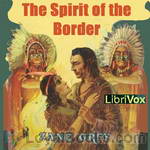 The Spirit of the Border
The Spirit of the Border
This is an early novel by the phenomenally successful author of frontier, western and sports stories. It deals with historical characters and incidents in the Ohio Valley in the late 18th century, especially with the foundation of Gnaddenhutten, a missionary village intended to bring Christianity to the Indians of Ohio, despite the violent opposition of both Indians and white renegades. This turbulent adventure romance features the heroics of a semi-legendary frontiersman, Lewis Wetzel, who attempts to protect the settlers from hostile Native Americans and the vicious white outlaws the Girty brothers. (Introduction by Leonard Wilson) | |
 Call Of The Canyon
Call Of The Canyon
Glenn Kilbourne returns from the war and travels to Arizona to regain his health. There he is nursed back to health by an Arizona girl, Flo Hutter Kilbourne's fiancée, Carley Burch arrives in Arizona but soon becomes disillusioned with life in the West and returns to New York. Carley soon learns that life in the Big City is not what she really wants. Should she return to Arizaona? Will Glen still love Her? Not only a great love story, Grey, as usual, describes the environment in all its glory. | |
 The Man of the Forest
The Man of the Forest
| |
 Light of the Western Stars
Light of the Western Stars
| |
 Desert Gold
Desert Gold
| |
 Rainbow Trail
Rainbow Trail
The Rainbow Trail is a sequel to The Riders of the Purple Sage. Both novels are notable for their protagonists' mild opposition to Mormon polygamy, but in The Rainbow Trail this theme is treated more explicitly. The plots of both books revolve around the victimization of women in the Mormon culture: events in Riders of the Purple Sage are centered on the struggle of a Mormon woman who sacrifices her wealth and social status to avoid becoming a junior wife of the head of a local church, while The Rainbow Trail contrasts the older Mormons with the rising generation of Mormon women who will not tolerate polygamy and Mormon men who do not seek it. | |
 The U. P. Trail
The U. P. Trail
| |
 The Redheaded Outfield
The Redheaded Outfield
| |
 The Young Forester
The Young Forester
| |
 The Young Pitcher
The Young Pitcher
| |
By: Howard Pyle | |
|---|---|
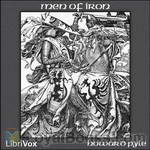 Men of Iron
Men of Iron
Men of Iron by Howard Pyle is historical fiction that transports us back to the 1400’s, a time of knighthood and chivalry. Myles Falworth is eight years old when news comes they must flee their home. His blind father is accused of treason. We see Myles grow up, train as a knight, and with perseverance, clear his father of any wrong-doing and restore their family name. | |
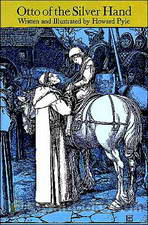 Otto of the Silver Hand
Otto of the Silver Hand
The story of little Otto, a gentle, peace-loving child born into the heart of turmoil and strife in the castle of a feuding robber baron in medieval Germany. (Summary by Arctura) | |
 Howard Pyle's Book of Pirates
Howard Pyle's Book of Pirates
Swashbuckling tales of legendary pirates, buccaneers, and marooners, terrors of the Spanish Main. | |
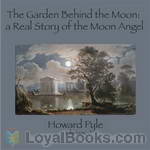 The Garden Behind the Moon: A Real Story of the Moon Angel
The Garden Behind the Moon: A Real Story of the Moon Angel
David goes on a journey to the moon-garden where everything is beautiful and where he also meets Phyllis who is not like the other children in the garden. While he is allowed to play in this beautiful place for awhile, he at last finds out that he has been brought there to reveal his true mission, which is to find the Wonder-Box and the Know-All Book that is hidden in the Iron Castle and bring them back to earth. In order to find the Iron Castle, he must first find and tame the Black Winged Horse. Will he be able to succeed at the task given him? (Summary by Laura Victoria) | |
 Howard Pyle's Book of Pirates
Howard Pyle's Book of Pirates
| |
 The Ruby of Kishmoor
The Ruby of Kishmoor
| |
By: Andrew Lang (1844-1912) | |
|---|---|
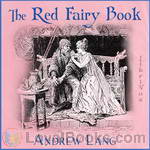 The Red Fairy Book
The Red Fairy Book
The Red Fairy Book is the second in a series of twelve books known as Andrew Lang’s Fairy Books or Andrew Lang’s “Coloured” Books. The series was immensely popular and proved of great influence in children’s literature, increasing the popularity of fairy tales over tales of real life. | |
 The Green Fairy Book
The Green Fairy Book
Andrew Lang's Fairy Books or Andrew Lang's "Coloured" Fairy Books constitute a twelve-book series of fairy tale collections. Although Andrew Lang did not collect the stories himself from the oral tradition, the extent of his sources, who had collected them originally (with the notable exception of Madame d'Aulnoy), made them an immensely influential collection, especially as he used foreign-language sources, giving many of these tales their first appearance in English. As acknowledged in the prefaces, although Lang himself made most of the selections, his wife and other translators did a large portion of the translating and telling of the actual stories... | |
 The Pink Fairy Book
The Pink Fairy Book
All people in the world tell nursery tales to their children, and the stories are apt to be like each other everywhere. A child who has read the Blue and Red and Yellow Fairy Books will find some old friends with new faces in the Pink Fairy Book. Courage, youth, beauty, kindness, have many trials, but they always win the battle; while witches, giants, unfriendly cruel people, are on the losing hand. So it ought to be, and so, on the whole, it is and will be; and that is all the moral of fairy tales... | |
 The Grey Fairy Book
The Grey Fairy Book
The tales in the Grey Fairy Book are derived from many countries—Lithuania, various parts of Africa, Germany, France, Greece, and other regions of the world. They have been translated and adapted by Mrs. Dent, Mrs. Lang, Miss Eleanor Sellar, Miss Blackley, and Miss hang. 'The Three Sons of Hali' is from the last century 'Cabinet des Fees,' a very large collection. The French author may have had some Oriental original before him in parts; at all events he copied the Eastern method of putting tale within tale, like the Eastern balls of carved ivory... | |
 HE
HE
This book is a parody of the famous swashbuckling novel, She, by H. Rider Haggard. Her beauties are beyond the reach of danger from Burlesque, nor does her form flit across our humble pages.” (taken from the Dedication) | |
 The Crimson Fairy Book
The Crimson Fairy Book
The Crimson Fairy Book contains thirty-six stories collected from around the world and edited by Andrew Lang. Many tales in this book are translated, or adapted, from those told by mothers and nurses in Hungary; others are familiar to Russian nurseries; the Servians are responsible for some; a rather peculiarly fanciful set of stories are adapted from the Roumanians; others are from the Baltic shores; others from sunny Sicily; a few are from Finland, and Iceland, and Japan, and Tunis, and Portugal... | |
 The Brown Fairy Book
The Brown Fairy Book
Andrew Lang’s Brown Fairy Book (1904) was a beautifully produced and illustrated edition of fairy tales that has become a classic. This was one of many other collections of fairy tales, collectively known as Andrew Lang’s Fairy Books. | |
 The Fairy Books of Andrew Lang
The Fairy Books of Andrew Lang
| |
 Violet Fairy Book
Violet Fairy Book
Andrew Lang’s Violet Fairy Book (1901) was a beautifully produced and illustrated edition of fairy tales that has become a classic. This was one of many other collections of fairy tales, collectively known as Andrew Lang’s Fairy Books. | |
 The Lilac Fairy Book
The Lilac Fairy Book
| |
 Prince Prigio From "His Own Fairy Book"
Prince Prigio From "His Own Fairy Book"
| |
 Prince Ricardo of Pantouflia being the adventures of Prince Prigio's son
Prince Ricardo of Pantouflia being the adventures of Prince Prigio's son
| |
 The Disentanglers
The Disentanglers
| |
 A Monk of Fife
A Monk of Fife
| |